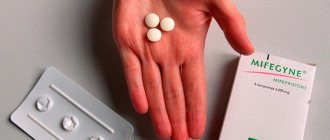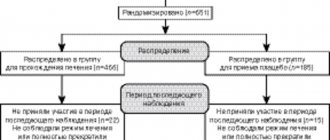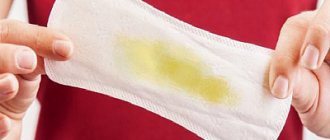Vagilak is a remedy that is often used in gynecology, it contains a complex of lactobacilli that help prevent the development of pathogenic microflora and regulate microbiocenosis.
DISCLAIMER: This article is for informational purposes only. To prescribe medications and receive medical care, you must consult a doctor.
The drug is prescribed for the treatment in combination and prevention of very different types of vaginosis, including fungal, trichomonas and bacterial. The drug is expensive, due to this, many are trying to find cheaper analogues.
Compound
One capsule for oral use contains bacteria Lactobacillus reuteri RC-14, Lactobacillus rhamnosus GR-1 in an amount of 10 to 9 CFU.
Also contains additional ingredients: magnesium stearate, dextrose, starch, MCC. The capsule contains gelatin and titanium dioxide. Vagilak vaginal capsules (suppositories) are not produced or sold in Russia.
One vaginal capsule contains active bacteria Lactobacillus acidophilus, Lactobacillus rhamnosus, Streptococcus thermophiles, Lactobacillus delbrueckii subsp. bulgaricus. Vagilak suppositories also contain additional ingredients, including lactose and ascorbic acid .
Bacterial vaginosis (BV) is a polymicrobial non-inflammatory vaginal syndrome that occurs due to a severe imbalance of the vaginal microflora. Due to the suppression of natural defense factors characteristic of the gestational period, pregnant women are most vulnerable to the development of dysbiotic processes in the vagina against the background of activation of resident microorganisms [2]. Vaginal microecology disorders are found in every third patient visiting a gynecological office [4], and the number of cases of BV in pregnant women reaches 50%. Relative immunodeficiency and a shift in the balance of sex hormones potentiate the exacerbation of chronic processes in the body of pregnant women (chronic infectious diseases of the kidneys, lungs, etc.), which, in order to prevent intrauterine infection of the fetus, as well as postpartum complications in the mother, requires the prescription of antibacterial drugs, including antibiotics. Systemic antibiotic therapy not only leads to even more pronounced immune disorders, but also affects human microbiocenoses: skin, intestinal and vaginal [4]. The use of antibiotics shortly before delivery without subsequent correction of vaginal microbiocenosis leads to an increase in the incidence of postpartum endometritis by 2-6 times, wound infection by 3-8 times, sepsis by 4 times, while the etiology of the infectious lesion is dominated by opportunistic microflora, coinciding with biotope of the vagina [2]. All this determines the relevance of timely prevention and treatment of vaginal dysbiosis in pregnant women, especially those at high risk of developing infection, before delivery.
In modern obstetrics, probiotics are used for this purpose - pharmacological preparations or dietary supplements containing strains of normal human microflora or microbial metabolites that have a beneficial effect on the microbiocenosis. Since vaginal dysbiosis is often combined with intestinal dysbiosis, especially when taking antibiotics, it is most advisable to use oral probiotics, while the main task of pharmacologists is to ensure the resistance of the probiotic to the acidic environment of the stomach, as well as bile and pancreatic enzymes [1].
The drug Vagilak in the form of capsules containing probiotic strains of lactobacilli meets all the criteria: Lactobacillus rhamnosus
GR-1 tm and
Lactobacillus reuteri
RC-14 tm in a total amount of at least 109 CFU per capsule. Vagilak is a biologically active food additive that helps increase the number of bacteria in the vagina and normalizes microflora. Vagilak, a probiotic for oral administration, has a unique capsule that ensures the preservation of the viability of lactobacilli during their passage through the gastrointestinal tract, without causing dyspepsia. The contained strains of lactobacilli restore the natural acidic environment in the vagina (pH 3.8-4.5) and increase the resistance of the mucous membrane to the effects of pathogenic microorganisms.
The purpose of the study was to evaluate the effectiveness of the use of the probiotic Vagilak for the prevention and treatment of vaginal dysbiosis in pregnant women before childbirth.
Material and methods
The observation included 70 pregnant women aged 18 to 40 years who were admitted for delivery to the obstetric observation department of the State Budgetary Healthcare Institution MO MONIIAG at 36-39 weeks of pregnancy. The patients were divided into two groups: group 1 included 30 pregnant women in whom bacterial vaginosis was detected during examination; group 2 included 40 pregnant women who received antibacterial therapy for acute or exacerbation of chronic infectious extragenital diseases. 10-14 days before delivery, 50 pregnant women (30 in group 1 and 20 in group 2) were prescribed Vagilak, 1 capsule per day with meals: in the 1st group for the treatment of BV, in the 2nd - for the purpose of preventing vaginal dysbiosis while taking antibiotics (subgroup 2a). The remaining 20 pregnant women (subgroup 2b) from group 2 did not receive the probiotic.
All pregnant women underwent examination: microscopy of a vaginal smear, bacteriological, virological, examination of vaginal discharge with determination of qualitative and quantitative characteristics of microbial colonies, including aerobic, anaerobic flora and normal lactobacilli. The Amsel criteria were also assessed: pH of the vaginal environment, the nature of the discharge, the sodium hydroxide test, the presence of “key cells”. The examination was carried out twice: before starting to take Vagilac and after completing the course of therapy.
Results and discussion
In group 1, 19 patients were primiparous, 11 were multiparous. The course of pregnancy was uncomplicated in 13 patients, in 7 the pregnancy was complicated by the threat of miscarriage, in 8 - fetoplacental insufficiency (FPI), in 2 - gestational diabetes mellitus. Pregnant women of the 2nd group were admitted to the department for examination and treatment of extragenital diseases of infectious origin in the acute stage: chronic pyelonephritis - in 19, chronic lung diseases - in 14, in 7 there was an exacerbation of chronic tonsillitis and nasopharyngitis. The course of pregnancy was complicated in all patients, and the complications were combined: threat of termination of pregnancy at different times, FPN, fetal growth retardation syndrome (FGR), preeclampsia, anemia; 22 patients were primiparous, 18 were multiparous.
Pregnant women of both compared groups did not have significant differences in age and parity. During an examination in a antenatal clinic, 17 patients of the 1st group were diagnosed with BV, for which at different stages of pregnancy they were treated with various antibacterial drugs (Terzhinan, Hexicon, Klion D, Vaginorm S), as well as probiotics (Lactobacterin, Acylact, Gynoflor ). In 5 out of 17 pregnant women, the course of BV was recurrent. In 28 pregnant women of the 2nd group, during an outpatient examination, normobiocenosis (I-II degree of vaginal cleanliness) was determined; in 8, carriage of Mycoplasma genitalium
and/or
Ureaplasma urealyticum
without clinical manifestations, and 4 had recurrent vulvovaginal candidiasis, despite previous treatment (pimafucin, zalain, ginofort, etc.).
The results of a bacteriological examination carried out upon admission of pregnant women to the obstetric observation department of the institute were assessed according to the classification developed by E.F. Kira [3]. In all 30 pregnant women of group 1, the diagnosis of bacterial vaginosis was confirmed based on a low concentration of lactobacilli (less than 50%), an increased content of aerobes and/or anaerobes (more than 104 CFU/ml); in addition, the Amsel criteria were positive (pH more than 4.5; positive “foam” test, presence of “key” cells).
After receiving the examination results, all pregnant women in group 1 were prescribed Vagilak 1 capsule per day. Control examinations were carried out 7 and 14 days after the start of treatment. After 7 days, the examination was carried out in all 30 pregnant women, after 14 days - in 21, since 9 pregnant women had given birth by the time of the re-examination: in 8, a repeat cesarean section was performed due to the failure of the uterine scar, and in one, premature birth occurred.
During the first control examination, not a single pregnant woman experienced complete normalization of vaginal microbiocenosis, however, in all examined women, the number of lactobacilli increased to 70-80%, the number of “key” cells decreased, the content of aerobes and/or anaerobes in 21 patients decreased to 103-4 CFU/ml, in 9 – remained above normal.
Mycoplasma was found with a high titer of lactobacilli (more than 80%)
spp.
and Candida albicans.
And another one had
Ureaplasma
spp., but the number of these microorganisms did not exceed 104 CFU/ml.
Thus, studies have shown the high effectiveness of the probiotic Vagilak in the treatment of BV in pregnant women.
Since in 10 patients of the 1st group the method of delivery was cesarean section (in 8 - repeat, in 2 - first due to FPN), all these patients underwent intraoperative prevention of infectious complications by bolus administration of second-third generation cephalosporins. In the postoperative period, Vagilac was continued. 20 pregnant women had urgent spontaneous births, 11 women in labor underwent an episiotomy due to the threat of perineal rupture. When examining the birth canal, 5 postpartum women were found to have grade I cervical ruptures. None of the patients had deep vaginal lacerations. The early postpartum and postoperative periods in 28 postpartum women proceeded without complications; uterine subinvolution was diagnosed in 2 postpartum women after cesarean section.
In 28 out of 30 newborns there were no manifestations of intrauterine infection; only 2 children born to mothers with repeatedly recurrent BV during pregnancy had an intrauterine infection: intrauterine pneumonia in 1, vesiculosis in 1.
When examining patients of the 2nd group in a hospital setting, 32 of them were found to have I-II degree of vaginal cleanliness and normobiocenosis; in 8, mycoplasma and ureaplasma were found in a concentration of less than 104 CFU/ml; candida was not detected in any of the patients. All pregnant women of group 2 were treated for exacerbation of extragenital diseases of infectious origin. Patients in subgroup 2a (20 patients) were prescribed the probiotic Vagilac, 1 capsule per day with meals, along with antibiotics. Pregnant women of subgroup 2b (20 patients) received antibiotic therapy without prescribing a probiotic. In 5 pregnant women of subgroup 2b, on the 3-4th day from the start of treatment, complaints of burning and itching in the vagina and curdled discharge from the genital tract appeared. In 9 pregnant women, similar complaints appeared on the 6-7th day of treatment. 6 pregnant women had no complaints, however, during examination 3-4 days after the end of treatment, 4 were found to have fungi of the genus Candida.
In all 14 pregnant women who had complaints indicating the presence of the disease, fungal microflora was also found in the vagina.
None of the pregnant women from subgroup 2a experienced clinical manifestations of vulvovaginal candidiasis during antibiotic therapy. When examined 3-4 days after the end of treatment, only 1 patient had Candida fungi found in the vagina .
All pregnant women with vulvovaginal candidiasis were prescribed the drug zalain - 1 suppository once at night.
In 8 patients from group 2, the method of delivery was cesarean section: in 6 it was repeated, in 2 it was the first due to severe gestosis; 32 pregnant women were delivered through the natural birth canal: spontaneous labor occurred in 30 (urgent in 28, premature in 2), and in 2 patients the birth was completed by vacuum extraction of the fetus due to acute hypoxia. At the end of the second stage of labor, 19 women in labor underwent an episiotomy due to the threat of perineal rupture (10) and to shorten efforts (9). When examining the birth canal, 6 postpartum women were found to have grade I-II cervical ruptures (4 from subgroup 2b, 2 from subgroup 2a); 10 had vaginal ruptures (7 from subgroup 2b, 3 from subgroup 2a). The early postpartum and postoperative periods in 36 parturient women proceeded without complications; in 2 parturient women, after repeated cesarean section, uterine subinvolution was diagnosed by ultrasound (one from subgroup 2a and one from subgroup 2b). In one postpartum woman from subgroup 2b, the postpartum period was complicated by endomyometritis, and in one from the same subgroup, by dehiscence and suppuration of the wound after episiotomy.
Patients of group 2 gave birth to 42 children (2 twins), 37 full-term, 5 premature (3 after cesarean section, including one twin and 2 after spontaneous birth). 6 newborns were diagnosed with IUGR. 33 out of 42 newborns had no manifestations of intrauterine infection, 9 children were born with various forms of infectious and inflammatory diseases: 2 had pneumonia (subgroup 2b), 2 had conjunctivitis (subgroups 2a and 2b), 3 had pyoderma (2 of subgroup 2b, one from subgroup 2a), 2 had rhinitis (subgroups 2a and 2b). During bacteriological examination of material from the inflammation site, epidermal staphylococcus was found in 5 newborns, ureaplasma in 2 and yeast fungi in 2 (both children from subgroup 2b).
Thus, the studies have demonstrated the high effectiveness of the probiotic Vagilak in the treatment of BV in pregnant women. The drug has proven itself to be a probiotic capable of restoring vaginal microflora after various disturbances, maintaining and maintaining the balance of microorganisms in the vagina, and preventing disorders associated with taking antibiotics.
conclusions
1. Pregnant women with impaired vaginal microbiocenosis are at risk of developing gestational complications, intrauterine infection, as well as puerperal complications in postpartum women.
2. The probiotic Vagilak for oral administration, which has a unique capsule that ensures the preservation of the viability of lactobacilli during their passage through the gastrointestinal tract, can be used with high efficiency for the treatment of vaginal dysbiosis, as well as for the prevention of vulvovaginal candidiasis during antibiotic therapy in pregnant women.
3. The advantage of an oral probiotic over a vaginal one in pregnant women before delivery is the convenience of its single daily use during meals, as well as the absence of the need for additional vaginal manipulations, which should be limited, especially before surgical delivery.
pharmachologic effect
Vagilak capsules are an oral remedy that contains lactobacilli . Under their influence, the vaginal microflora is restored, regenerative and protective processes in the mucous membrane are activated, and an optimal pH level is maintained.
The gel effectively moisturizes, prevents dryness of the mucous membrane, eliminates discomfort, thereby increasing the quality of sexual life.
The use of the gel eliminates the deficiency of vaginal lubrication. As a result, women disappear from all manifestations associated with vaginal dryness: itching , burning , cracks . The product helps eliminate dry mucous membranes for a long time. It is effective in the presence of this symptom associated with various reasons - menopause , taking medications, stress, illness, etc.
The use of the gel helps prevent damage to the mucous membrane and speed up recovery processes.
Vagilac vaginal capsules (suppositories) contain bacteria that help normalize the vaginal microflora, in particular lactobacilli, etc.
Vagilak normalizes the pH of the vagina. As a result, the growth of pathogenic microflora slows down and the number of “useful” bacteria increases. The drug prevents the manifestations of relapse of bacterial vaginosis .
Buy Vagilak capsules 180 mg No. 15 in pharmacies
Vagilak Buy Vagilak in pharmacies MANUFACTURERS Jadran Galensky Laboratories together with Chr. Hansen A/S (Croatia)
GROUP of dietary supplements - sources of probiotic microorganisms
COMPOSITION Each Vagilak capsule contains unique strains of bacteria Lactobacillus rhamnosus GR-1tm and Lactobacillus reuteri RC-14tm. Excipients: dextrose, starch, microcrystalline cellulose, magnesium stearate.
INTERNATIONAL NON-PROPENTED NAME no
PHARMACOLOGICAL ACTION Vagilak helps to increase the number of lactobacilli in the vagina and normalizes vaginal microflora. The bacteria Lactobacillus rhamnosus GR-1TM and Lactobacillus reuteri RC-14TM restore the natural acidic environment in the vagina (pH 3.8-4.5) and increase the resistance of the mucosa to pathogenic microorganisms.
INDICATIONS FOR USE - vaginal dysbiosis, including bacterial vaginosis, as an independent remedy or in complex therapy; - during and after therapy with antibiotics, cytostatics, corticosteroids, antifungal and antiviral drugs; — subacute and chronic inflammatory processes of the female genital area; - during and after specific antimicrobial, antiviral and immunomodulatory therapy for urogenital infections and sexually transmitted diseases (gonorrhea, chlamydia, urogenital herpes, human papillomavirus infection, etc.); — prenatal preparation of pregnant women; — preparation for planned diagnostic and therapeutic gynecological operations; - when using contraception (IUD, COC, spermicide); — hormonal-dependent colpitis, senile, etc., as an independent remedy or against the background of specific hormonal therapy. Vagilac is a source of probiotic lactobacilli Lactobacillus rhamnosus GR-1TM and Lactobacillus reuteri RC-14TM for girls over 10 years of age and women.
CONTRAINDICATIONS Individual intolerance to product components.
SIDE EFFECTS No data available.
INTERACTION No data available.
METHOD OF APPLICATION AND DOSAGE For girls over 10 years of age and women, in order to restore and maintain normal microflora in the vagina, in consultation with a doctor, it is recommended to take 1 capsule per day with meals, washed down with water. For complex therapy of chronic inflammatory diseases of the genital organs, as well as during and after treatment with antibiotics, it is recommended to take 1 capsule 2 times a day. When taking oral antibiotic therapy, Vagilac is taken at least 2 hours before or after taking antibiotics. Duration of treatment is 2-6 weeks. If necessary, the reception can be repeated.
OVERDOSE No data available.
SPECIAL INSTRUCTIONS No data available.
STORAGE CONDITIONS Store at a temperature not exceeding 25 degrees C in a dry place, protected from light and out of reach of children.
Indications for use
Vagilak suppositories and capsules (tablets) are used for the treatment and prevention of disorders of the vaginal microflora, including disorders associated with diseases of fungal and bacterial origin, as well as diseases caused by protozoa.
The drug is used in the complex treatment of gynecological diseases in which there is a violation of the vaginal microflora.
Recommended for use by women, as well as adolescents over ten years of age who have vaginal dysbiosis .
Vagilac capsules are prescribed for the following diseases and conditions:
- vaginal dysbiosis , in particular bacterial vaginosis ;
- chronic and acute inflammation of the female genital organs;
- antibiotic therapy , as well as in the treatment of sexually transmitted diseases ;
- the need to prepare the vagina for upcoming childbirth , procedures and interventions;
- age-related or hormonal colpitis .
The use of Vagilak gel is practiced in the following cases:
- for vaginal dryness caused by any reason;
- as an additional remedy in the complex treatment of gynecological diseases of an inflammatory nature;
- for complex therapy of vaginal dysbacteriosis ;
- in order to normalize the microflora after treatment with antifungal and antibacterial agents;
- with regular use of oral contraceptives .
Vagilak soap is used for daily hygiene. It should be used during menstruation, after abortion, after childbirth, etc.
Vagilak
Available in the form:
- Vaginal suppositories with the main active ingredients – Lactobacillus rhamnosus and Lactobacillus reuteri.
- Tablets for oral use with the same main active ingredients.
- Liquid soap for intimate hygiene based on lactic acid with extracts of medicinal calendula and chamomile.
- Moisturizing gel for intimate hygiene based on lactic acid.
The healing properties and effects of each form of the drug are distinctive:
- Vaginal capsules help normalize the vaginal microflora
, prevent recurrences of bacterial candidiasis, and eliminate pathogenic microbes. - Tablets for oral use revive the vaginal microflora, activate the protective and regenerative processes of the mucous membrane, and maintain an impeccable pH level.
- Soap maintains the traditional pH of the genital organs
, has an anti-inflammatory effect, and eliminates feelings of discomfort and dryness in the intimate area. - The gel moisturizes the vaginal mucosa, eliminates burning sensation, speeds up the regeneration process, and also maintains the necessary pH level in the intimate area, maintaining the balance of microflora.
Vagilak suppositories and tablets are indicated for the following pathologies:
- Vaginal dysbiosis.
- Chronic and acute inflammation of the female genital organs .
- Together with antibacterial drugs and in the treatment of sexually transmitted diseases (chlamydia, etc.).
- Preparation of the vagina before childbirth, gynecological procedures or surgery.
- While using contraceptives, such as spermicides, intrauterine devices or COCs.
- Hormonal or age-related colpitis.
Gel Vagilak is indicated:
- For complex treatment of vaginal dysbiosis (for example, use gel or soap together with capsules).
- As an additional remedy for inflammatory diseases of the female genital organs
. - For vaginal dryness of various etiologies.
- While taking oral contraceptives.
- After taking antifungal and antibacterial agents to improve microflora.
- For daily intimate hygiene.
- As a prophylactic agent to prevent any injuries when performing complex gynecological interventions.
Soap is used for daily genital
women and girls (from 10 years old). It is recommended for use during menstruation, after abortion, childbirth, examinations and actions through the vagina and so on.
Vagilak can be used during pregnancy and lactation.
Side effects
: rarely hyperemia of the vaginal mucosa.
Contraindications: acute inflammation and/or erosive lesions of the vaginal mucosa, intolerance to the components of the product.
Also on the topic: Causes, symptoms and treatment of colpitis
Instructions for use of Vagilac (Method and dosage)
Pills
Vagilac oral capsules (tablets) are administered orally. It is advisable to take the capsules with plenty of water and take them during meals. The dosage and duration of treatment in each individual case is determined by the attending physician. In most cases, you need to take one capsule per day.
The therapeutic effect after treatment develops over two to six weeks.
Instructions for Vagilak suppositories
Vaginal capsules (suppositories) must be administered intravaginally. The drug is administered in a lying position deep into the vagina, this should be done before bedtime. Throughout the entire period of treatment with the product, personal hygiene must be carefully observed.
When treating disorders of the vaginal microflora associated with infectious and inflammatory gynecological diseases of an acute and chronic nature, one Vagilac capsule is usually prescribed at night. The use of the drug begins 4-5 days after the start of antibiotic therapy. The course of treatment in this case lasts 10 days.
In order to prevent disturbances of the vaginal microflora, including those associated with trichomoniasis , bacterial vaginosis and candidiasis , Vagilak monotherapy is prescribed. Every day, starting from the second half of the monthly cycle, one capsule of the product is inserted deep into the vagina before bedtime. The course of treatment in this case lasts 10 days.
If there is such a need, the doctor may extend the course of treatment or prescribe re-therapy with Vagilac.
For how long it is necessary to use capsules (tablets) and gel, and according to what regimen to take the drug, is determined by the attending physician.
Analogs
Acylact
Available in the form of suppositories, tablets, lyophilisate for preparing a suspension; active ingredients – acidophilic lactic acid bacteria of 3 strains.
It has an antimicrobial effect and is used as part of a complex treatment for various diseases of the urogenital tract (vaginosis, vaginitis, chlamydia, gonorrhea, herpes, etc.). In addition, Acylact changes the composition of the intestinal microflora to eliminate intestinal dysbiosis (tablets and lyophilisate), vaginal dysbiosis (vaginal suppositories).
The tablets are taken 30 minutes before meals. Adults and children over 5 years old are prescribed 5 tablets 2-3 times a day, children under 5 years old - 2-3 tablets 2 times a day for 1-4 weeks, depending on the health condition of the patient.
Suppositories are used rectally (for girls) or vaginally (for women). Prescribe 1 suppository 2 times during the day (in the evening and in the morning). Depending on the disease, the course of treatment can vary from 7 to 20 days.
Lyophilisate is prescribed orally 30 minutes before meals 2-3 times during the day. For acute inflammatory procedures, adults and older children – 5 doses; infants – 2-3 doses for 8 days; for recurrent and protracted forms of the disease, continue the course of therapy for at least 14-25 days.
Side effects
: allergic reaction.
Contraindications: candidiasis, hypersensitivity, childhood (for tablets).
Lactobacterin
Available in the form of vaginal suppositories, tablets, powder for suspension, liquid solution; active ingredients: lactobacilli acidophilus.
Oral forms are used for gastrointestinal dysbiosis, dysentery, chronic colitis, and so on. Suppositories are indicated for the treatment and prevention of vaginal dysbiosis, inflammatory pathologies (gonorrhea, salpingitis, hormone-dependent colpitis and others), during preparation for gynecological operations.
For inflammatory diseases, 1 suppository is prescribed 2 times a day for 10 days. To prevent purulent-septic difficulties, 1 suppository is prescribed 1 time throughout the day for 5 days. Restorative therapy after treatment with antibiotics is 1 suppository 2 times a day for up to 10 days.
Side effects
:
allergic reaction
.
Contraindications: childhood (suppositories), hypersensitivity, vulvovaginal candidiasis.
Laktogin
Available in the form of suppositories and capsules; active ingredients - lactobacilli.
Indicated for vaginal dysbiosis, inflammatory pathologies of the female genital area (including urogenital infections and STDs: chlamydia, gonorrhea, human papillomavirus disease, urogenital herpes, and so on), prenatal preparation, hormone-dependent and senile colpitis.
To improve vaginal microflora, adults need to take 1 capsule every day throughout the day; for inflammatory pathologies – 2 capsules throughout the day. You should take the capsules in the morning on an empty stomach or not before 2 hours after a meal. Suppositories are suggested to be administered after douching 1 time at night before going to bed for 7 days.
Side effects : rarely allergic reaction.
Contraindications: intolerance to the components of the drug.
Lactozhinal
Available in the form of vaginal capsules; active ingredient – lactobacilli.
The drug is indicated for restoring normal vaginal microflora after antibacterial treatment, during the preparation of gynecological operations, and before childbirth.
Prescribe 1 capsule in the evening and in the morning for 7 days or 1 suppository for 14 days.
Side effects : increased mucous discharge from the vagina, an allergic reaction in the form of burning, itching, redness in the genital .
Contraindications: age under 18 years, vulvovaginal candidiasis, hypersensitivity.
Lactonorm
Available in the form of candles; active ingredient: lactobacilli acidophilus.
An agent that regulates the balance of vaginal microflora is prescribed to prevent and cure vaginal dysbiosis, in the treatment of a combination of acute, chronic and subacute vaginitis and vulvitis, bacterial vaginosis after antibiotics, postmenopausal atrophic vaginitis.
For preventive purposes, 1 capsule is prescribed 1 time throughout the day for 14 days: for therapeutic purposes - 1 capsule 2 times throughout the day for 7 days.
Side effects: itching, burning.
Contraindications: vulvovaginal candidiasis, age under 18 years.
Interesting read: Beauty and health of the modern woman
Montavit
Available in gel form; active ingredient – hydroskiethylcellulose.
The skin care product is used for disorders of the composition of vaginal secretions and for gynecological interventions that involve the insertion of instruments into the vagina.
The gel must be applied to the vaginal vestibule area before intercourse or a gynecological procedure. The frequency and dose of use is determined by the woman individually.
Side effects
: not found.
Contraindications: hypersensitivity.
Provag
Available in the form of tablets for oral administration, gel; active ingredient – lactobacilli of 3 strains.
The product is indicated for maintaining and restoring normal microflora of the vagina and urinary system during therapy with antibacterial and antifungal drugs, after surgery on the genitourinary organs, during menopause and menstruation.
The tablets must be taken orally with meals, washed down with 1 piece of water 1 time throughout the day. The course of treatment is 20-30 days. A dosed amount of gel must be applied to the perineum and external genitalia
1 time during the day.
Side effects : allergic reaction , tingling may occur when applied topically.
Contraindications: age under 18 years, fairly high sensitivity to the components of the product.
Similar articles: Early menopause: fear or rejoice?
Ecofemin
Available in the form of vaginal and oral capsules; active ingredient: lactobacilli acidophilus.
The product changes, normalizes and maintains the physiological balance of the vaginal microflora. Vaginal capsules are used for bacterial vaginosis, nonspecific vulvovaginitis, hormone-dependent colpitis, and prenatal preparation. Oral tablets are indicated after poisoning, taking antibacterial drugs, to restore the vaginal biocenosis after the use of laxatives and enemas, and intestinal dysbiosis.
Vaginal capsules are used 2 times a day for 6 days in a row. For the purpose of prevention, take 1 capsule at night for 3-7 days in a row. The course of therapy should not be the same as menstruation. Take the tablets orally 30-40 minutes before meals. Oral capsules for adults and children over 6 years of age are prescribed 1 capsule 2 times a day; children from 4 to 6 years old – 1 capsule 1 time during the day.
Side effects : rarely the appearance of itching when using vaginal capsules.
Contraindications: candidiasis of the intestines, vagina, intolerance to the components of the drug, age under 4 years (tablets).
Vagilac's analogs
In pharmacies you can purchase a number of analogues of the drug, which include dietary supplements, as well as those medications whose action is aimed at normalizing the microflora of a woman’s genital organs.
When choosing a drug, it is worth considering that not only the price of analogues differs, but also their components. Such preparations contain lactobacilli and bifidobacteria , which are isolated from the intestines of healthy people, while Vagilak contains lactobacilli that live in the urogenital tract of healthy women.
However, the drugs Acilact , Bacteriobalance , Bifi Normolyzer , Bifidumbacterin , Lactobacterin , Prolit , etc. are considered analogues of Vagilac.
Vagilak during pregnancy and lactation
If there are no contraindications listed above, Vagilak can be used to treat pregnant and lactating mothers. Treatment with the drug can be practiced throughout the entire period of pregnancy.
Taking Vagilac during pregnancy is sometimes included in the general set of actions in preparation for childbirth. The drug should be started two weeks before the expected birth. 1 capsule should be taken daily until the onset of the first contractions. Thanks to the improvement of microflora, the level of tissue extensibility increases, which is a preventive measure to prevent tissue ruptures.
Vagilak soap is used during pregnancy for daily hygiene procedures. A gel can also be used to moisturize the vagina.
Vagilak during pregnancy: pharmacological properties of the drug
No woman wants her fetus to be formed surrounded by hostile microflora.
Such a neighborhood is dangerous; it will “reward” the child with diseases that will be impossible to get rid of in the future. Healthy vaginal flora is represented by colonies of lactobacilli; they make up about 90–95% of all microorganisms. Colonies form a special protective biofilm, surrounded by the products of their vital activity - the glycocalyx.
Inconspicuous creatures play a colossal role. They actively reproduce and “populate” the territory. In the process of their life activity, they produce deadly products and, thus, deter “strangers” from penetrating the vagina. Their “weapons” are the enzyme lysozyme, hydrogen peroxide and the acidic environment that they create themselves.
The ideal supplier of live lactobacilli is Vagilak. This is an oral probiotic (probios), which means a community of two organisms that are beneficial to each other.
Vagilak was synthesized by Canadian scientists. The research took 20 years. Subsequently, it began to be successfully used in almost all countries of the world. It contains live lactobacilli, which relieve inflammation and resist infection.
Take Vagilak like regular tablets. Under the action of gastric juice, the capsule dissolves, but lactobacilli remain protected by a special gel. In the small intestine, the gel dissolves and lactobacilli come to life. They pass through the intestines and enter the vagina, where they begin to multiply. Their activity displaces pathogenic microorganisms. Next, they begin to produce lactic acid, which determines the acidity (pH) of the vaginal environment, and the produced hydrogen peroxide prevents the proliferation of pathogenic bacteria.
For a woman’s health and the normal course of pregnancy, a certain species constancy of microorganisms in the vagina is necessary. When the balance in this fragile community is disturbed, infectious diseases develop: vulvovaginal candidiasis (thrush of pregnant women), nonspecific vaginitis and bacterial vaginosis.
Vagilak has a triple effect:
- Hyperacidification;
- Hydraulic lubrication;
- Purification.
As a supplier of lactobacilli, it will be able to provide the beneficial majority and adequate protection.
Vagilak: indications for use
Each woman has her own specific composition of lactobacilli in her vagina. She received them from birth, they provide lifelong protection or, as they say, local immunity (immunity).
However, there are many reasons why the beneficial inhabitants of the vagina die. This often happens after taking antibiotics during pregnancy, using hormonal therapy, or due to improper hygiene (tampons, frequent douching). The mucous membrane dries out, its environment changes to alkaline, and favorable conditions are created for the colonization of unnecessary microbes - their number grows exponentially. Pregnancy in such an environment is undesirable.
In this case, replacement therapy with live lactobacilli is indicated. Vagilac contains a sufficient number of viable microorganisms. The uniqueness of the drug lies both in the presence of living flora and in the form of its delivery. While microorganisms reach their destination, they may die from the action of gastric and intestinal juices. The Canadian pharmaceutical company spent a lot of time to create a safe delivery for them - a special capsule.
It is important not only to place living organisms in the pill, it is necessary to preserve them, deliver them safely to the vagina, so that they attach there and begin to multiply, and the woman sees the effect. The perfection of such a dosage form is included in the cost of the drug.
Please note: there are several forms of Vagilac on the pharmaceutical market. They do not replace each other, but only complement each other, since they have different compositions.
Release forms of Vagilak:
- capsules for oral administration;
- gel with applicator;
- liquid soap and wet wipes;
- candles.
Vagilak capsules during pregnancy
The main active ingredient of Vagilac capsules (Hansen Denmark) for oral administration:
- Lactobacillus rhamnosus;
- Lactobacillus reuteri.
Indications for use:
- vaginal dysbiosis, genital infections (bacterial vaginosis during pregnancy, thrush, other types of vaginitis, trichomoniasis);
- after antibiotic therapy;
- for prevention before childbirth;
- for the purpose of sanitation at the stage of pregnancy planning to create a favorable environment in the vagina.
For treatment, you need to drink one capsule 2 times a day, during meals and with water. The duration of the course is 2 weeks. For prevention before childbirth, take a capsule once a day for 4 weeks. The capsules must not be opened, otherwise the bacteria will die. It is recommended to consult a doctor before use.
Vagilak suppositories during pregnancy
Vagilac suppositories from another manufacturer (Pharmacy, Canada) are more often found on the market. They contain 10 capsules in a bottle; their composition differs from Vagilak (Hansen, Denmark), which has 7 capsules per wafer.
Vagilak suppositories (Hansen Denmark) also contain live strains of lactobacilli Lactobacillus reuteri and Lactobacillus rhamnosus, starch, fiber, dextrose and other excipients.
They are inserted at night after vaginal douching. They serve as an excellent addition to capsules. There are no original Vagilak candles (Hansen Denmark) on the Russian market.
Vagilak gel during pregnancy
Gel and soap for intimate hygiene contain lactic acid, chamomile extract and calendula. Apply:
- with vaginal dryness;
- as a lubricant during sex.
Recommended together with taking Vagilac capsules.
The lactic acid they contain helps maintain normal pH. They do not contain fragrances and can be used for daily intimate hygiene. Vagilak gel is indicated for pregnant women throughout pregnancy.
It is ideal to always have napkins on hand, to use on the road or in case of lack of gel and soap.
Vagilak tablets are not available during pregnancy. Sometimes capsules are mistakenly called this. The pills are not able to deliver live bacteria to the vagina.
Reviews about Vagilak
Reviews on forums left by women who have taken Vagilac tablets are usually positive. Under the influence of the drug, rapid normalization of the microflora of the vagina and intestines was noted. Reviews note that after taking the drug, discomfort in the genital area disappears and discharge decreases.
Vagilak capsules also effectively affect not only the health of adult women, but also improve the vaginal microflora in young girls who are not sexually active. Reviews from doctors indicate that the drug is effective for treating teenage girls whose microflora is disturbed due to stress, taking medications, etc.
Women also leave reviews of Vagilak gel. It is noted that the drug quickly eliminates vaginal dryness and all the unpleasant sensations associated with it. Women who use it during menopause speak positively about the gel.
Women who use Vagilak soap note that the product does not cause negative reactions or irritation and helps ensure quality hygiene for a longer time.
Effect of the drug Vagilak during pregnancy
Immunological memory for flora is formed in utero and depends on the composition of the mother’s microcenosis. If there is foreign flora in a woman’s genitals, then bacterial antigens are produced. They penetrate the placenta to the fetus and form an incorrect immune response, which will subsequently give allergies and react aggressively to its own cells.
Vagilac stops the reproduction of pathogenic organisms (yeast-like fungi, anaerobic streptococci, gardnerella) in the genital tract, which can cause premature birth. For example, gardnerella produces toxic products - mucolytic enzymes and hemolysin. And streptococci cause respiratory diseases and meningitis in the fetus.
With dysbacteriosis, pathological formation of the microflora of the newborn occurs (hostile colonization) and improper development of its immune system. Vagilak capsules eliminate these negative consequences.
Vagilak when planning pregnancy
Before conception, it is especially necessary to monitor indicators of vaginal microcenosis and the main factors of local immunity. In this regard, when preparing for pregnancy, the use of Vagilac is correct.
Vagilak during pregnancy: reviews from mothers and doctors
According to reviews from women, Vagilak capsules are well tolerated; about 82% of pregnant women consider it effective. The use of the drug for 2 months did not cause any side effects in any woman.
The gel was also liked by many; it quickly eliminates itching and burning in the perineum, discomfort and other unpleasant sensations, and also reduces the likelihood of a relapse of the disease.
For many women, doctors, after antibiotic therapy or in preparation for pregnancy and childbirth, strongly advise a course of Vagilak, which can then be used throughout pregnancy.
Lyubov Maslikhova, general practitioner, especially for Mirmam.pro
Vagilak price, where to buy
Russia and Ukraine do not produce this drug, so its cost depends on a number of factors that are taken into account when importing the drug.
The price of Vagilak tablets is on average 600 rubles. for 15 capsules of 80 mg.
Vagilak vaginal capsules (suppositories) are not sold in Russia. The price of vaginal capsules (suppositories) Vagilak in Ukraine averages 160-180 hryvnia per 10 pieces.
The gel can be bought for 500 rubles (50 g tube). Vagilak soap, 250 g will cost approximately 500-600 rubles.
- Online pharmacies in RussiaRussia
- Online pharmacies in UkraineUkraine
- Online pharmacies in KazakhstanKazakhstan
ZdravCity
- Vagilak liquid soap for intimate hygiene 250 mlYADRAN-GALENSKI LABORATORY j.s.
RUR 434 order
Pharmacy Dialogue
- Vagilak soap for intimate hygiene 250mlJadran
RUR 565 order
- Vagilak intimate hygiene gel 50g Jadran
RUR 525 order
- Vagilak capsules 80 mg No. 15 Jadran
RUB 818 order
show more
Pharmacy24
- Vagilak No. 10 capsules Pharmascience Inc., Canada
152 UAH order
PaniPharmacy
- Vagilac capsule Vagilac caps. No. 10 Canada, Pharmascience
161 UAH order
show more









